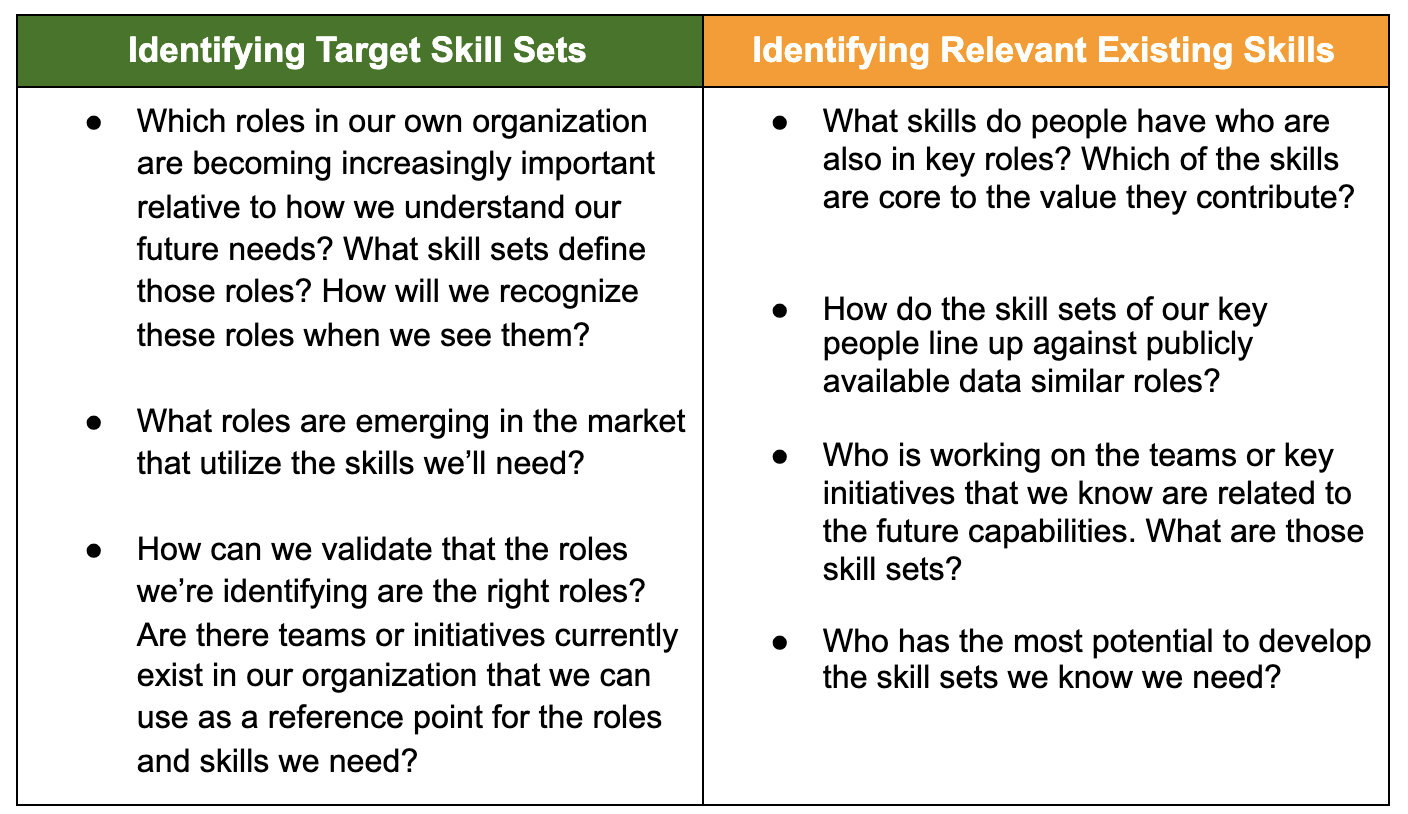Data Literacy and Skills: Asking the Right Questions
Brent Ross is Customer Success Manager at Ibbaka. See his skill profile here.
Asking good questions of the massive amounts of data your organization is collecting is is a critical part of data literacy. How you formulate these questions impacts your ability to make good decisions that will drive value-generating outcomes.
In the first post for our series on the skills and competencies needed for data literacy, my colleague Karen Chiang laid out many of the key business outcomes that are driving the need for data literacy. In doing so, Karen also calls out key business questions that our customers are often trying to answer with skills data in particular.
In this post, I explore one of these questions in more depth, and look at why the way in which we ask related questions is so vital to our ability to make business decisions with skill data. The question is:
“Do we have the skills needed to realize our vision?”
Naturally, there are variations on this question, ...
“Do we have the skills needed to serve this new market?”
“Do we have the skills to adapt to the disruptive forces in our current markets?”
“Do we have the skills we need for resilience?”
“Do we have the skills we need to adapt?”
The essence of these questions is the need to know what skills we have relative to an anticipated requirement. That requirement may not be well defined or understood at the time someone asks the question.
Going beyond the initial question
To answer this type of question, we begin by identifying target skill sets, while simultaneously understanding what skills exist. By doing this, we will understand the potential that can be unlocked to evolve existing capabilities or to build new capabilities. Below are related questions that can help you gather the right data that can in turn lead to an analysis of strengths and gaps.
These questions are as much about data generation as they are about analyzing data that may already exist inside or outside your organization. At Ibbaka, we look outside of our customers’ internal data sets in order to do this work. We have used everything from competitor websites, to industry white papers, to patents, to LinkedIn and job postings to help our customers better understand the skills they are going to need to remain differentiated and competitive.
You may or may not have the skills data you need at this particular phase in your digital transformation to answer these questions. Asking these questions can help people in your organization understand the need for such data, along with the need for a system of record to capture the contexts in which skills are being used (jobs, roles, teams). It’s also vital to capture reliable assessment data for those skills as individuals demonstrate their abilities, in the flow of work.
Where are the questions leading?
The questions we ask of skills data need to be designed in such a way that the answers will help us make decisions. These decisions include:
Succession planning - looking beyond performance reviews and your job architecture to skills data can help organizations identify the skills they most need to develop, and which employees are most invested in learning those skills.
Making the right learning investments, including on-the-job learning opportunities - skills data can give you the ability to understand who should be mentoring whom, and in what capacities, and where it makes the most sense to create projects that serve immediate goals as well as that build skills.
Building new capabilities - skills data can help you understand who the right people are to lead new capability development, and more importantly, who they should have on their team to support the effort.
Like any good question, getting the answer will lead to new questions, and a continuing deepening of the organization’s ability to build new capabilities while increasing resilience and the ability to adapt.
What is the current state of skills data in your digital transformation? Is the assessment data you have now a reliable indicator of current capabilities? If you’d like to have a conversation with us about how Ibbaka Talent can help you answer the questions we’ve outlined here, or other questions you may have, please get in touch.



